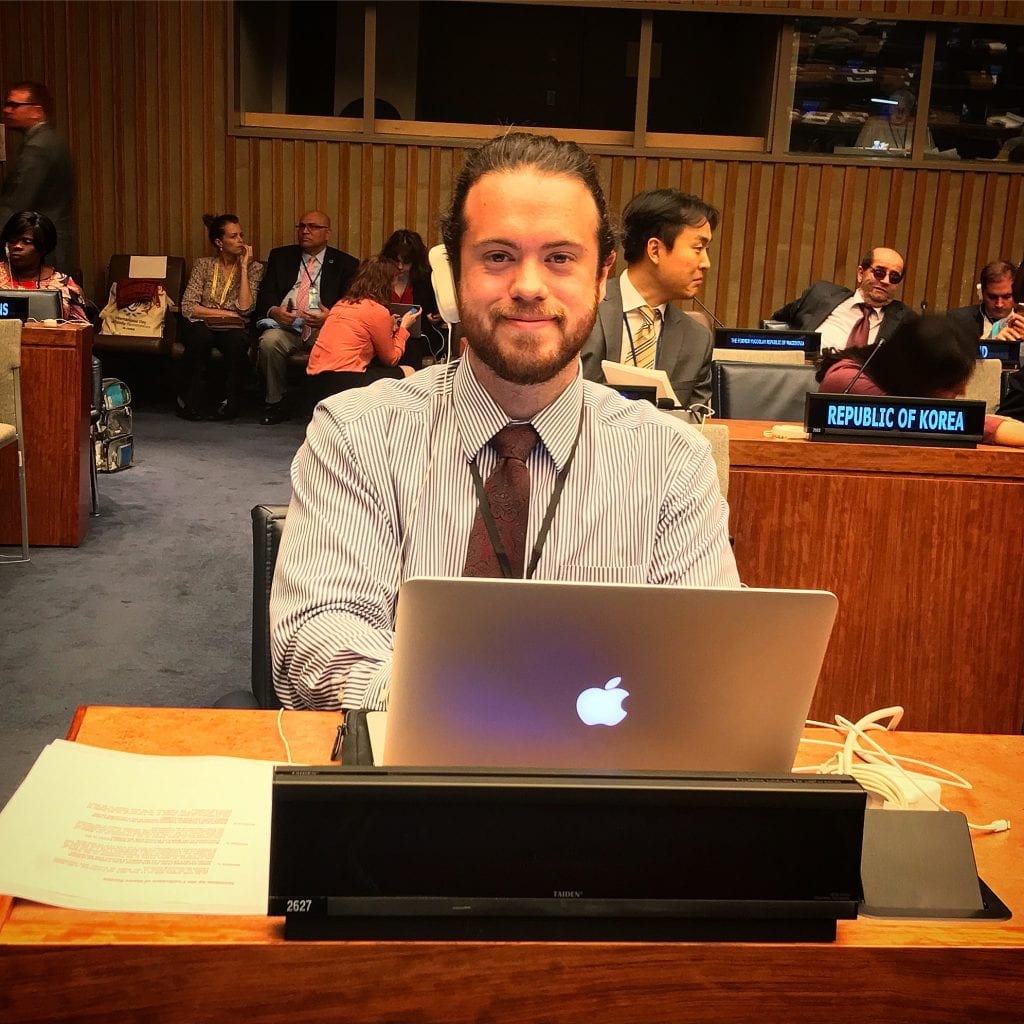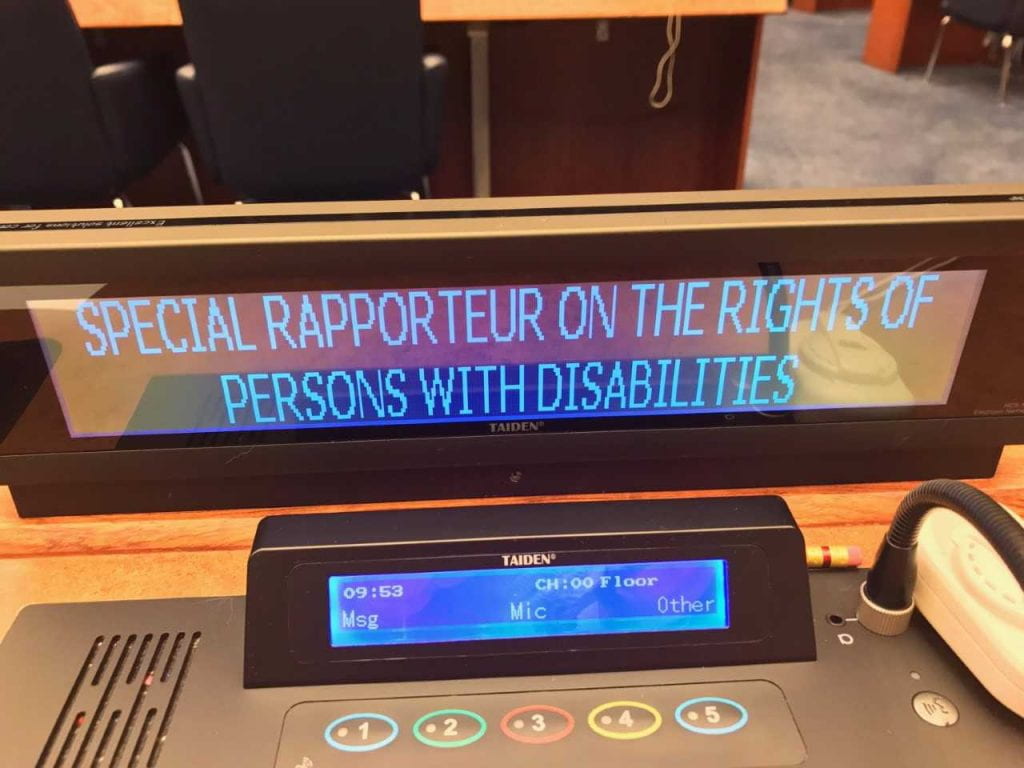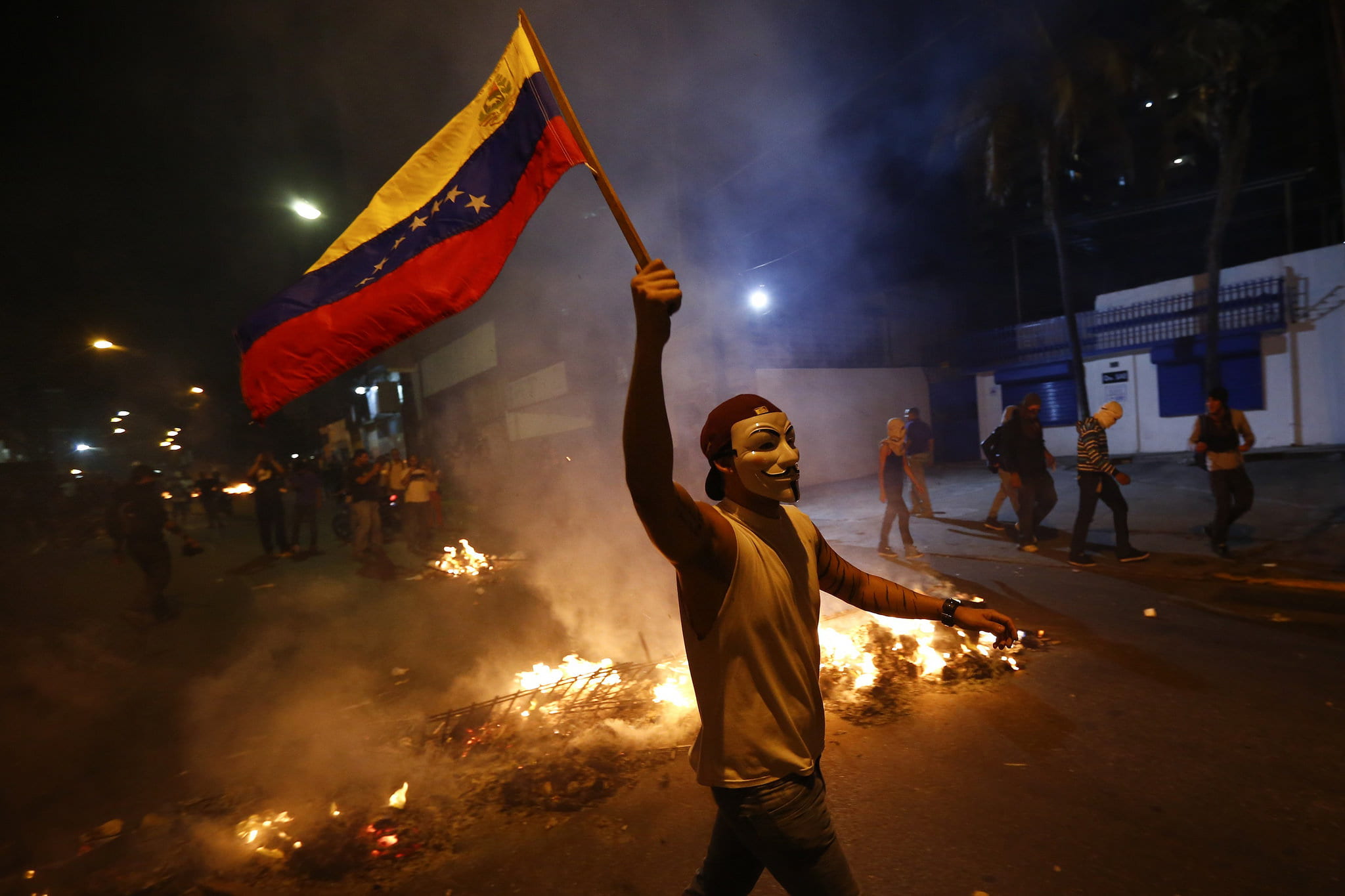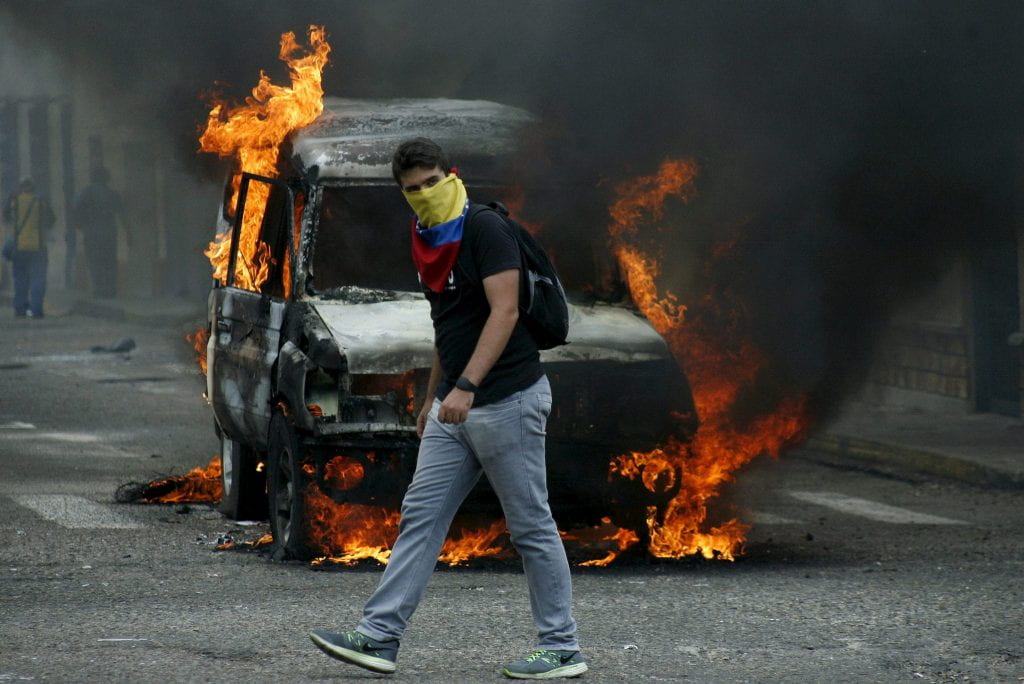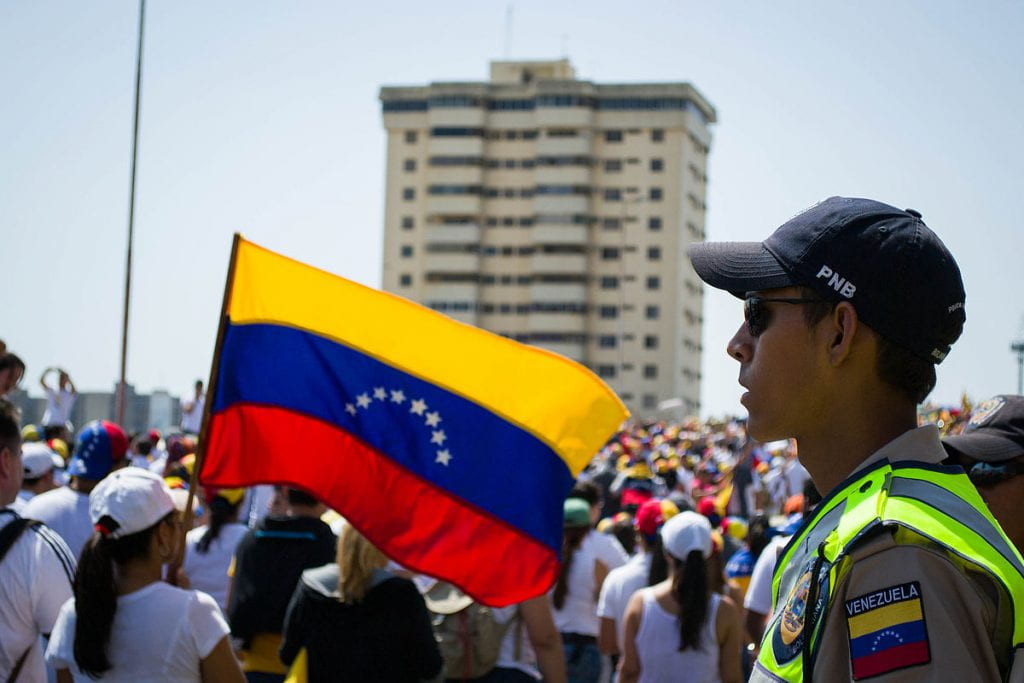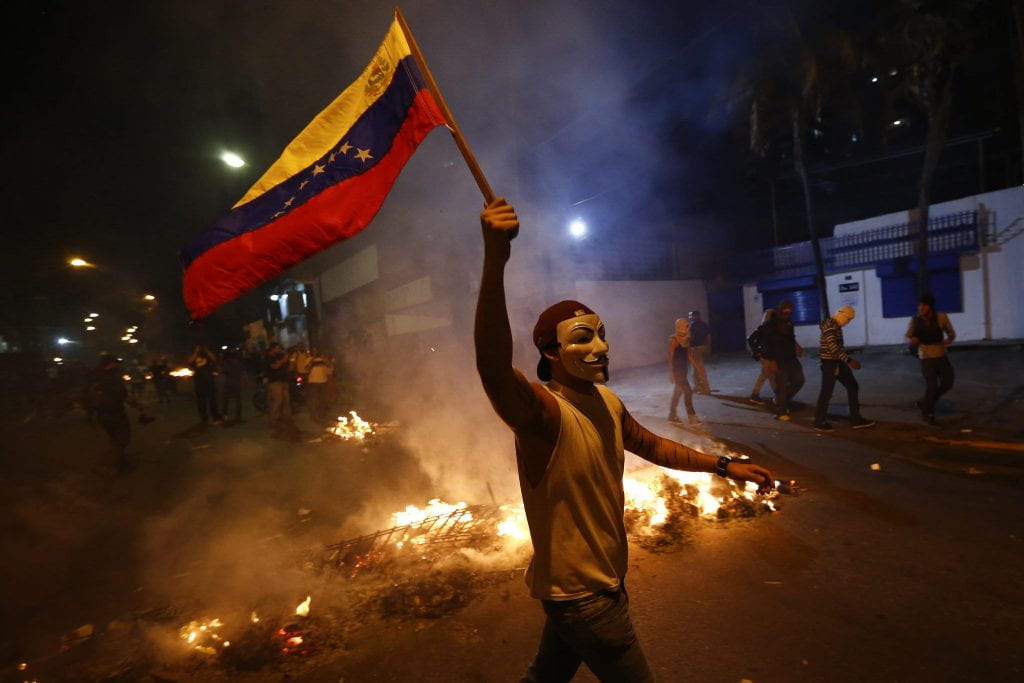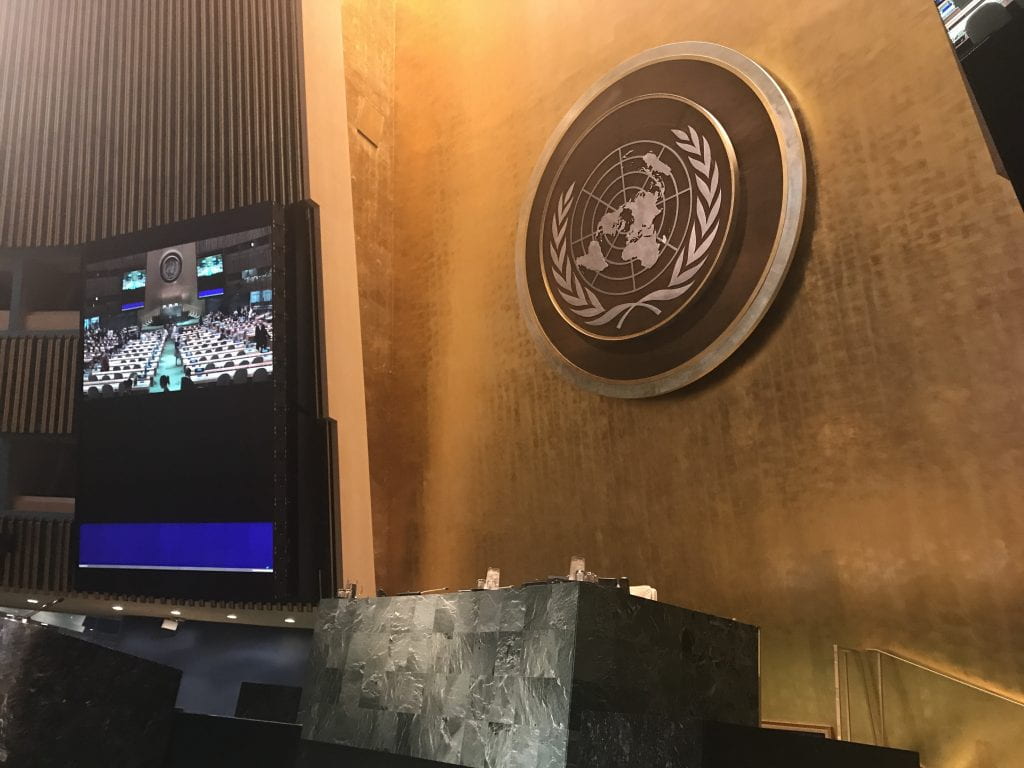
I was given the opportunity to work as a rapporteur for the Conference of State Parties to the Rights of Persons with Disabilities (CRPD) at the United Nations in New York City. As a rapporteur, it was my duty to report on each event and assembly that I attended by drafting a summary of what took place respectively. I was able to attend the opening ceremony in the General Assembly Hall, which is where the meetings of the 193 Member States originally take place; an event on data mining, which is when one uses a large database to come to conclusions, and the importance of technology for persons with disabilities, where Dr. Reuter presented her research; a Roundtable Debate, where each party was able to ask questions and address any concerns they may have; and finally, a panel discussion with members, one of which was Dr. Reuter, who had the opportunity to present their findings from their research and answer questions from the audience.
When we were getting our duties and learning our roles, the Director for the United Nations Department of Economic and Social Affairs (DESA) Division for Social Policy and Development, Daniela Bas, came in to speak to us. It was a humbling experience, as she made an effort to get to know everyone in the room. I was also able to meet delegates from Canada, Zambia, and New Zealand. I remember Zambia’s representatives standing out specifically, for many reasons. Zambia is a country in southeastern Africa, where resources are limited. However, with the resources they have left, they have made efforts to allocate some of them to persons with disabilities. They also reported on their progress in implementing the CRPD, and it claimed to have many positive strides despite the fact that there is still much to be done.
During the Roundtable Debate, the issue of travel complications was raised. It was an eye-opening moment for me personally, as someone who loves to travel. I learned that a lot of individuals and families must plan business trips and vacations around accessible places and there will more than likely still be difficulties during their travels due to accessibility issues. Catalina Devandas Aguilar, who is the Special Rapporteur on the Rights of Persons with Disabilities then spoke on how there must be a greater political commitment to combat this issue. As the Special Rapporteur, she is trusted to be impartial and knowledgeable when she reports on a country’s trials. She was not speaking of a certain country in this case, but what she had examined across the globe. She also called for more respect, dignity, and a gender-equal approach when concerning persons with disabilities and the obstacles they face. It is important for all of these prongs to be met for persons with disabilities as they are seen as lesser or incapable at times. In reality, it is not feasible for persons with disabilities to accomplish something due to inaccessibility.
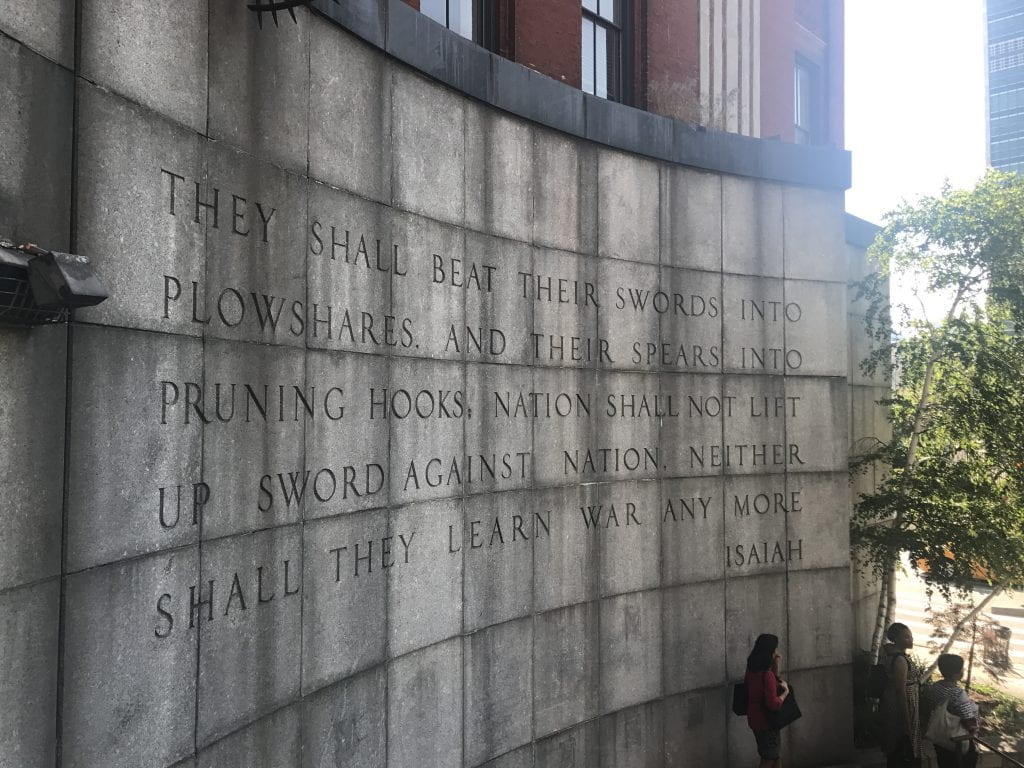
Prior to my week of working for the United Nations, I had a vague idea about how it was operated. I assumed it was similar to a business, but on a much larger scale. I imagined that the employees, directors, and delegates would be strictly focused on the Conference. I now have a small, but a clearer understanding of how the United Nations works. Those mentioned were certainly focused, but they were open to chatting and encouraging to others. Ms. Bas went out of her way to come speak to us, and the employees that I sat beside during the events were extremely welcoming and helpful. They asked about who I was, where I am from, and what I hope to accomplish one day. I expected to have to aggressively network to get to meet higher-up employees, but they were the ones who made the efforts to get to know me and the rest of the team. It changed my perspective of the United Nations in a positive way and fanned the fire inside of me to want to work there more. I was unsure of what a day at the United Nations would be like for an employee, and I only received a small glimpse of it, but I am thrilled to have gotten the experience.
Throughout the course of the Conference, I was able to see the importance of a global approach to handling persons with disabilities’ rights and implementing the CRPD. When it comes to a community so large and diverse, the United Nations must act cohesively to reach the 2030 agenda of sustainable development, and this Conference was a testament to their commitment. Doing so would ensure the world would be more accessible for all and lessen the issues faced by persons with disabilities.
This opportunity was heavily impactful for me. I was introduced to the world of the United Nations, and the humanitarian world outside of it. I met people who are involved in advocacy and fighting for rights around the globe, whether they are employed by the United Nations or not. I always envisioned myself being truly fulfilled by working for the United Nations alone, but I learned that there are many different outlets to accomplish the types of things I want to one day. It is still my end goal to be employed by them, but I have realized that I can have a fulfilling career. I am beyond grateful to Dr. Reuter for her research and advocacy, as she is truly making a difference. I am also grateful to have had her bring me along to experience the United Nations from the perspective I was given.


